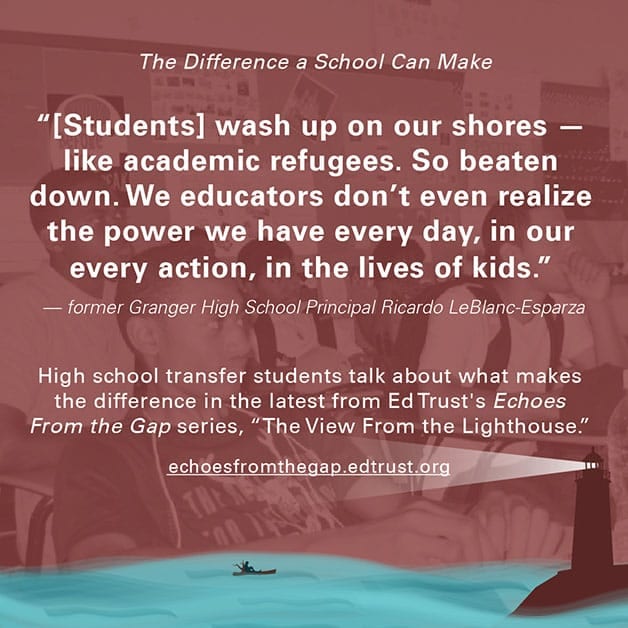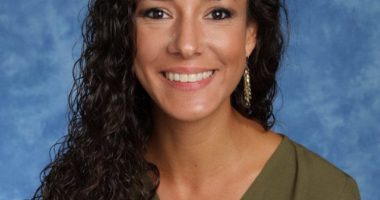Why I Teach Where I Teach: To Give My Students the Same Opportunities My Teachers Gave Me
April Greene is a third-grade English language arts teacher at The Walker-Jones Education Campus in Washington, D.C., where she has taught for two years. Ninety-five percent of students at The Walker-Jones Education Campus are black and 99 percent receive free or reduced-price lunch.
Like many of my students, I was born and raised in the inner city. I was raised in a single-parent home, and I was taught very early that hard work was the only thing that would get me out of my circumstances. My father, who worked long, countless hours, made sure I knew one thing: I was a statistic. The odds were that I would not graduate high school — let alone college — and it was more likely that I’d become a young mother.
My father and my teachers let me know that this was not an option for me. They planted my love of reading and fostered my desire to do well. These experiences made me realize that working with underserved children who were disadvantaged was what I wanted to do with my life — I wanted to work with students like me. When I walked into the doors of The Walker-Jones Education Campus, I met students who mirrored my younger self — so many bright individuals who simply need the love and support of others to foster their greatness. I teach where I teach because these kids are me, and I want to impact their lives the same way my teachers impacted mine. Some of my students may be facing things that one could only imagine, such as homelessness or abuse, but they still enter this school every day ready to learn. My students are resilient, hard-working, and have decided that they are the ones who will define their destinies. My students are the reason I teach where I teach.
 This post is a part of an ongoing series, called “Why I Teach Where I Teach,” which asks educators in high-need schools to share what has attracted (and kept) them in the challenging environments they’re in. They share important stories and experiences that should remind us all of the power of strong school leadership, a network of supportive colleagues, and the genuine opportunity to have a say in schoolwide decisions. Listen up! They’re teaching us.
This post is a part of an ongoing series, called “Why I Teach Where I Teach,” which asks educators in high-need schools to share what has attracted (and kept) them in the challenging environments they’re in. They share important stories and experiences that should remind us all of the power of strong school leadership, a network of supportive colleagues, and the genuine opportunity to have a say in schoolwide decisions. Listen up! They’re teaching us.













